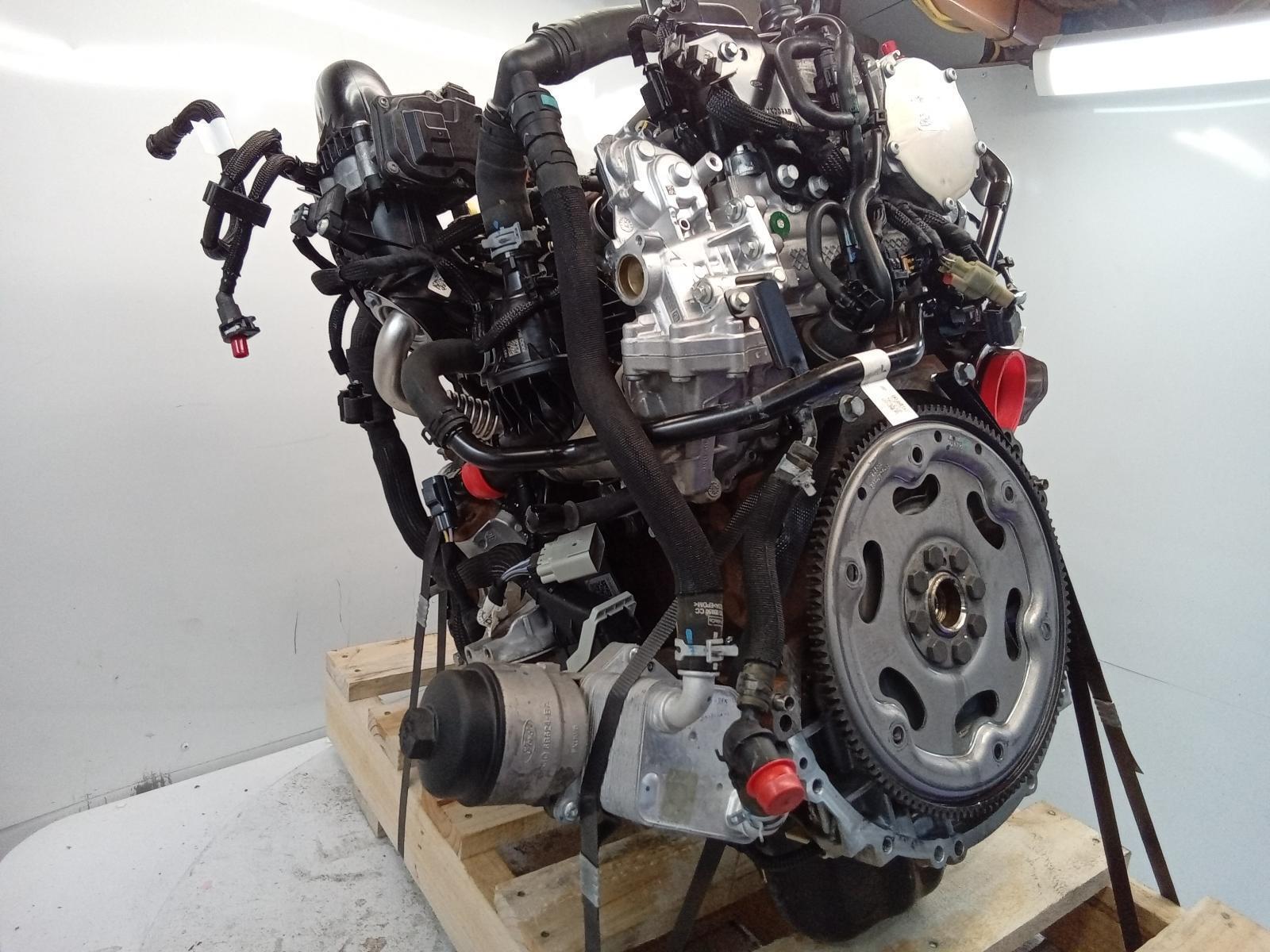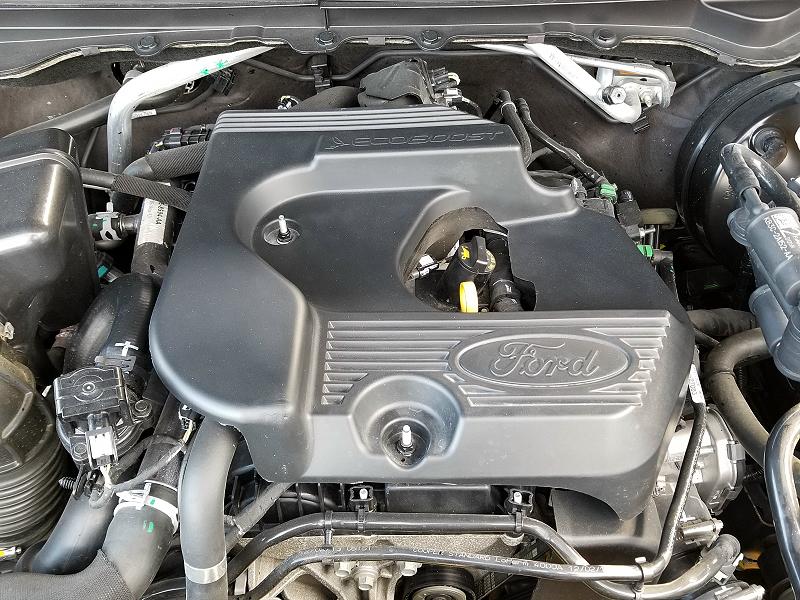Why the 2.2 Ford Ranger Engine Is a Popular Choice for Rugged and Reliable Performance
Why the 2.2 Ford Ranger Engine Is a Popular Choice for Rugged and Reliable Performance
Blog Article
How to Pick the Right Vehicle Engine for Maximum Efficiency and Efficiency
Picking the appropriate vehicle engine to attain an optimum equilibrium of performance and performance demands a nuanced understanding of numerous engine kinds and their particular qualities (2.2 ford ranger engine). Factors such as engine displacement, the number of cyndrical tubes, and gas type play a critical duty in determining both power output and gas economic climate.
Recognizing Engine Kind
When choosing an auto, one of one of the most crucial components to think about is the engine type, which acts as the heart of the vehicle. The engine type considerably influences the car's overall performance, long life, and viability for your driving needs. There are mainly three engine kinds to consider: interior combustion engines (ICE), hybrid engines, and electrical engines.
Internal burning engines continue to be the most common, operating gas or diesel. They are known for their power and velocity, making them ideal for performance-oriented vehicles. However, they may drop brief in fuel performance and environmental influence.
Crossbreed engines combine an interior combustion engine with an electrical motor, providing an equilibrium in between performance and gas economy. They are significantly prominent for vehicle drivers looking for lowered discharges while still delivering sufficient power.
Electric engines, powered entirely by batteries, are obtaining traction because of their ecological advantages and lower running expenses. They supply immediate torque and a silent driving experience, making them optimal for city travelling.

Efficiency vs. Performance
Picking the appropriate engine kind includes evaluating the trade-offs between efficiency and effectiveness. Performance usually describes exactly how well an engine can provide power and acceleration, which is typically related to larger variation engines or those with turbocharging capacities. These engines commonly supply electrifying driving experiences and quick reaction times, making them preferred amongst fanatics.
On the various other hand, performance concentrates on gas economic situation and lower exhausts. Smaller engines, specifically those geared up with sophisticated modern technologies such as straight gas shot and variable shutoff timing, have a tendency to deliver better miles per gallon and decreased carbon impacts. While these engines may give up some power compared to their bigger counterparts, they frequently master everyday driving scenarios where high performance is not constantly essential.
Inevitably, the choice between performance and efficiency joints on specific priorities. A motorist who values perky driving could focus on a high-performance engine, while somebody looking for affordable commuting might favor an effective option. Understanding these compromises is important for making an educated decision that straightens with your driving demands and lifestyle, making sure that the chosen engine kind enhances your assumptions for both efficiency and efficiency.
Secret Requirements to Consider
Recognizing essential specs is essential for making an informed choice regarding the right automobile engine. When choosing an engine, several critical aspects warrant consideration to make sure optimal performance and effectiveness.
First of all, engine variation, measured in liters or cubic centimeters, is a vital spec. It suggests the overall volume of the engine's cylinders and generally associates with power output; larger variations typically generate more power. Next, the number of cyndrical tubes plays a substantial duty in performance attributes. Engines with even more cylinders can offer smoother procedure and higher power, while smaller sized configurations can enhance fuel efficiency.
In addition, the engine's setup, whether inline, V-type, or rotary, affects the general layout and efficiency qualities of the vehicle - 2.2 ford ranger engine. Turbocharging and turbo charging innovations should also be reviewed; these boost an engine's power result without significantly raising its read this post here size, hence enhancing efficiency
Gas kind is one more vital factor to consider, as it impacts both efficiency and costs. The engine's compression proportion affects efficiency and power shipment; a greater proportion normally leads to much better performance, but may need premium fuel. By very carefully analyzing these specifications, you can pick an engine that straightens with your efficiency and effectiveness objectives.
Examining Driving Demands
Assessing driving requirements is an essential action in establishing the best car engine for your lifestyle and use patterns. Begin by assessing your daily driving habits, consisting of the regularity and duration of trips. A smaller engine with good gas effectiveness might be enough if your driving largely is composed of short commutes in urban environments. Conversely, if you regularly undertake long-distance journeys or need towing abilities, a much more powerful engine might be essential.
Think about the terrain you typically browse. Hilly or sturdy landscapes may require an engine with higher torque for better efficiency. Furthermore, reflect on traveler and freight requirements; bigger households or those that move products might take advantage of vehicles with increased power and capability.
Diesel engines often offer exceptional torque and fuel economic situation for much heavier automobiles, while gas engines might supply a smoother and quieter ride. Factor in environmental considerations, as crossbreed or electrical engines can supply a much more sustainable choice without compromising performance.
Future Patterns in Engine Technology
As the automotive market remains to advance, innovations in engine modern technology are leading the way for more reliable and sustainable driving experiences. One considerable fad is the shift toward electrification, with crossbreed and totally electric powertrains gaining prominence. Car manufacturers are investing greatly in battery innovation to improve power density and minimize charging times, ultimately enhancing the practicality of electric vehicles (EVs)
Another emerging pattern is the growth of hydrogen fuel cell engines. 2.2 ford ranger engine. These systems offer the capacity for zero-emission driving while giving refueling times comparable to traditional fuel engines. Furthermore, innovations in combustion modern technology, you can try these out such as variable compression ratios and boosted turbocharging, are maximizing traditional internal burning engines for much better performance and efficiency
Digital integration is also a vital facet of future engine modern technology. The implementation of synthetic knowledge and artificial intelligence enables real-time data analysis, making it possible for smarter engine management systems that adapt to driving conditions and enhance gas efficiency.

Final Thought
To conclude, selecting the ideal vehicle engine requires a comprehensive examination of different variables, consisting of engine type, efficiency requirements, and effectiveness goals. By recognizing the distinctions in between various engine types and considering crucial specifications, people can straighten their choices with certain driving needs. As advancements in engine innovation remain to arise, continuing to be Recommended Reading educated about future fads will certainly even more improve decision-making, ultimately causing a vehicle that balances efficiency and fuel effectiveness properly.
Picking the proper car engine to accomplish an optimum equilibrium of performance and effectiveness requires a nuanced understanding of numerous engine kinds and their details qualities. There are largely three engine types to take into consideration: interior combustion engines (ICE), hybrid engines, and electrical engines.
Efficiency normally refers to exactly how well an engine can deliver power and acceleration, which is typically associated with larger displacement engines or those with turbocharging abilities. Diesel engines commonly supply remarkable torque and gas economy for much heavier vehicles, while gasoline engines might provide a smoother and quieter ride.In conclusion, choosing the suitable cars and truck engine demands an extensive assessment of different elements, including engine type, efficiency needs, and performance objectives.
Report this page